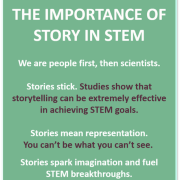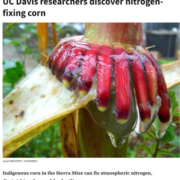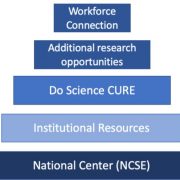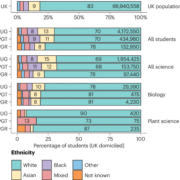Graduate student mentorship as a target for diversifying biology
 The quality of student-advisor relationships is one of the top predictors of research progress and sense of belonging in science, yet in most cases the mentoring relationship is simply left to chance. In this preprint, Debray et al. surveyed a cohort of PhD students to understand what mentoring practices really support the students. The authors start with some interesting but not surprising statistics: 69% of faculty received no formal mentoring training, yet they rarely feel they mentor poorly. Conversely, nearly half of graduate students report frequent poor mentoring, and these students are disproportionally from minority groups. The study identified several strategies to improve how students are mentored. Good mentoring involves mentors who demonstrate empathy and welcome honest feedback, meet frequently with their mentees, and provide both positive encouragement and critical feedback. In cases where the mentor does not provide good support, the student can fill the gap with strong support from other students and faculty, as well as benefit from a supportive department. Note: The ROOT & SHOOT project is recruiting plant scientists at all career stages to participate in a Working Group on Culturally Responsive Mentoring – see https://rootandshoot.org/working-group-on-culturally-responsive-mentoring/. (Summary by Mary Williams @PlantTeaching) bioRxiv https://doi.org/10.1101/2023.08.18.553806
The quality of student-advisor relationships is one of the top predictors of research progress and sense of belonging in science, yet in most cases the mentoring relationship is simply left to chance. In this preprint, Debray et al. surveyed a cohort of PhD students to understand what mentoring practices really support the students. The authors start with some interesting but not surprising statistics: 69% of faculty received no formal mentoring training, yet they rarely feel they mentor poorly. Conversely, nearly half of graduate students report frequent poor mentoring, and these students are disproportionally from minority groups. The study identified several strategies to improve how students are mentored. Good mentoring involves mentors who demonstrate empathy and welcome honest feedback, meet frequently with their mentees, and provide both positive encouragement and critical feedback. In cases where the mentor does not provide good support, the student can fill the gap with strong support from other students and faculty, as well as benefit from a supportive department. Note: The ROOT & SHOOT project is recruiting plant scientists at all career stages to participate in a Working Group on Culturally Responsive Mentoring – see https://rootandshoot.org/working-group-on-culturally-responsive-mentoring/. (Summary by Mary Williams @PlantTeaching) bioRxiv https://doi.org/10.1101/2023.08.18.553806








